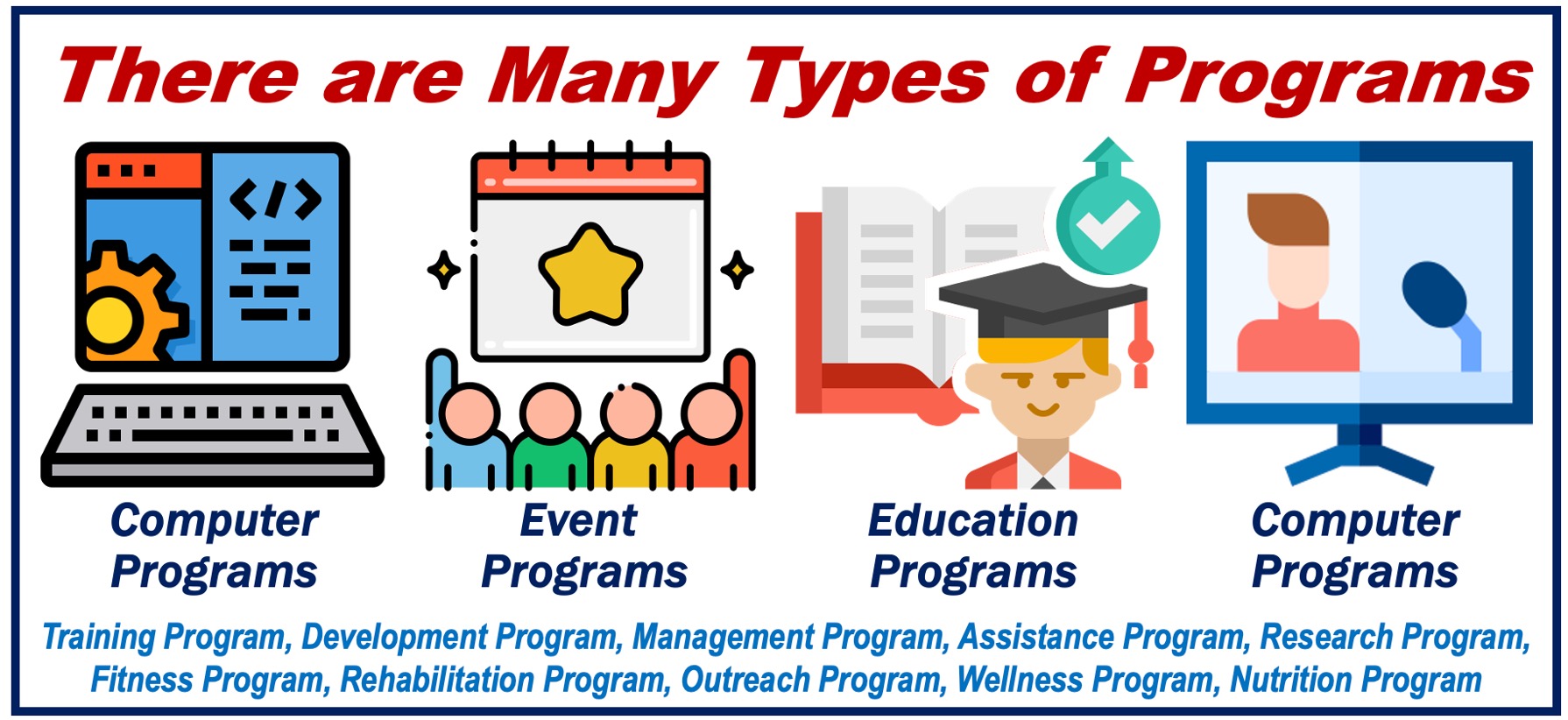A program refers to a planned or structured activity designed to achieve a specific goal or a set of goals. It can be of any kind and size, ranging from computer code to a sequence of activities or events.
Types of programs
There are many different types of programs, such as:
-
Computer programs
This type consists of a sequence of instructions written to perform tasks on a computer. The software helps guide the computer through designated actions and processes.
-
Television/Radio programs
These are scheduled content broadcasted on television or radio, like news, movies, soaps, series, documentaries, or music.
-
Educational programs
Curriculum or structured courses that are provided by schools and colleges and focus on specific subjects or skills.
-
Event programs
Agendas or schedules for events like conferences, weddings, or ceremonies, outlining the sequence of activities.
-
Government or nonprofit programs
Initiatives or projects that are made to address social, environmental, or economic issues.

Characteristics of a program
For something to be a program, it must have certain features:
-
Structure
Programs are usually well thought out and structured, with a clear sequence or set of components.
-
Goal-oriented
They are made with particular goals in mind.
-
Timed
Programs usually have a defined duration, with a start and end point.
Importance of programs
They can help us in many ways, such as:
-
Organization
Programs helps organizing activities or tasks towards a common goal.
-
Efficiency
They offer a path for systematically achieving goals.
-
Skill development
Educational programs can be very helpful when learning a new skill.
-
Information and entertainment
TV and radio programs are one of our main sources of information and entertainment.
Challenges
While developing a program, we may encounter various challenges including:
-
Planning
Effectively developing a program requires thorough planning and understanding of its objectives.
-
Resource allocation
Before you start, make sure you have enough staff, funds, and resources available.
-
Adaptability
Programs must be flexible enough to adapt to different conditions and feedback.
Creating a successful program
These tips may help you:
-
Clear objectives
Define what the program aims to achieve.
-
Understand your audience
Identify your target audience and what their needs and preferences are.
-
Detailed planning
Outline the steps, resources, and timeline needed.
-
Evaluation
Develop methods to assess the program’s effectiveness and impact.
Written by Nicolas Perez Diaz
